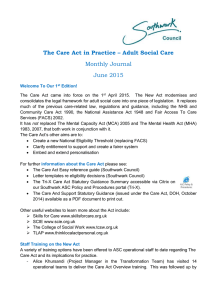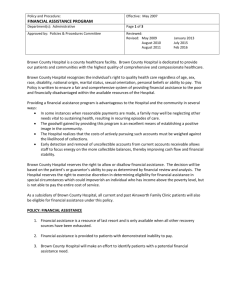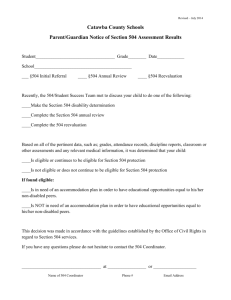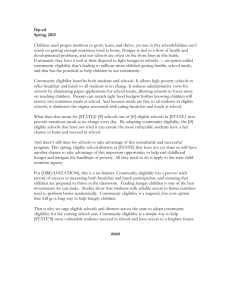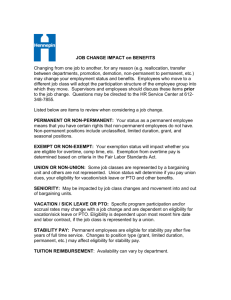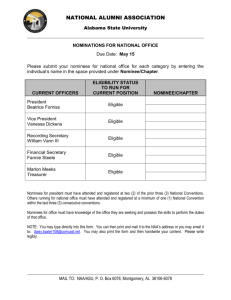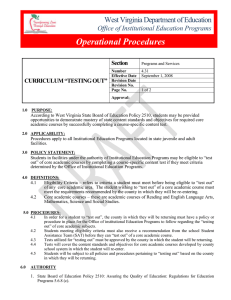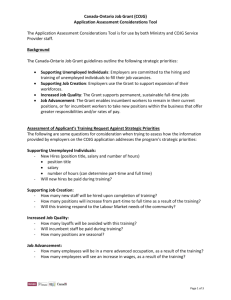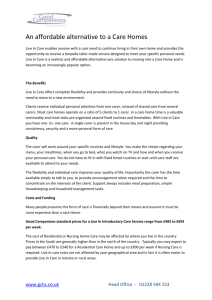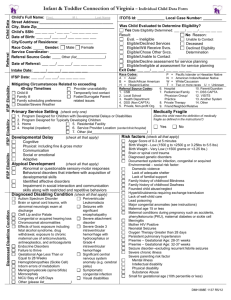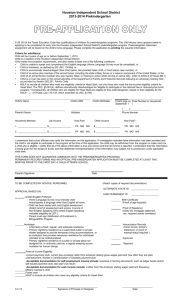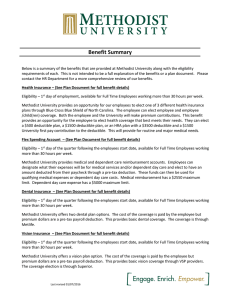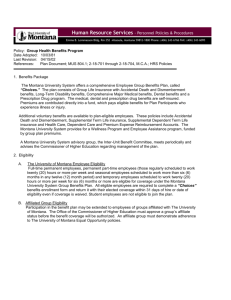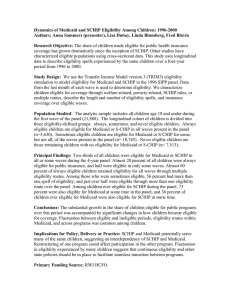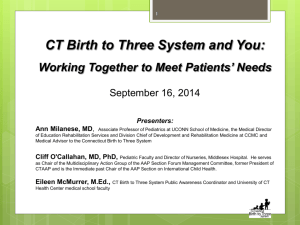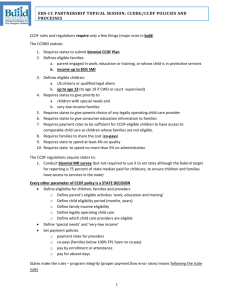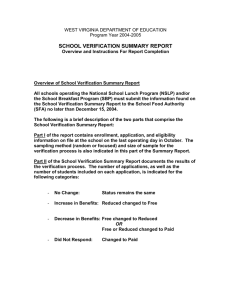Things your local authority should have told you about the care act.
advertisement
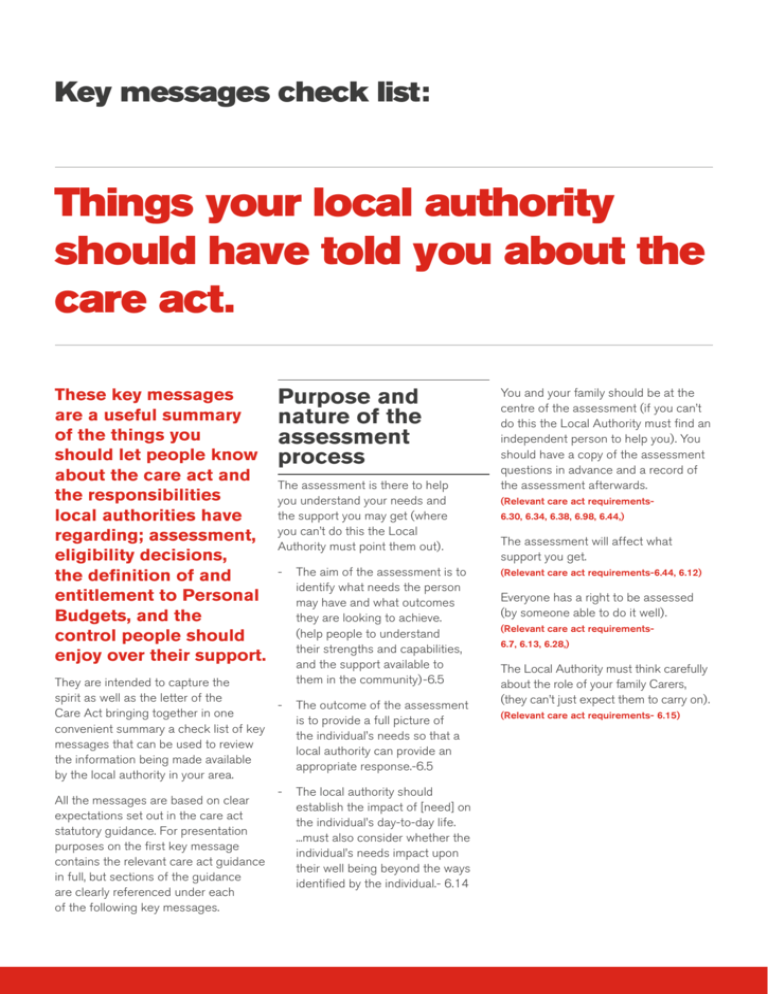
Key messages check list: Things your local authority should have told you about the care act. These key messages are a useful summary of the things you should let people know about the care act and the responsibilities local authorities have regarding; assessment, eligibility decisions, the definition of and entitlement to Personal Budgets, and the control people should enjoy over their support. Purpose and nature of the assessment process The assessment is there to help you understand your needs and the support you may get (where you can’t do this the Local Authority must point them out). -The aim of the assessment is to identify what needs the person may have and what outcomes they are looking to achieve. (help people to understand their strengths and capabilities, and the support available to them in the community)-6.5 They are intended to capture the spirit as well as the letter of the -The outcome of the assessment Care Act bringing together in one is to provide a full picture of convenient summary a check list of key the individual’s needs so that a messages that can be used to review local authority can provide an the information being made available appropriate response.-6.5 by the local authority in your area. -The local authority should All the messages are based on clear establish the impact of [need] on expectations set out in the care act the individual’s day-to-day life. statutory guidance. For presentation ...must also consider whether the purposes on the first key message individual’s needs impact upon contains the relevant care act guidance their well being beyond the ways in full, but sections of the guidance identified by the individual.- 6.14 are clearly referenced under each of the following key messages. You and your family should be at the centre of the assessment (if you can’t do this the Local Authority must find an independent person to help you). You should have a copy of the assessment questions in advance and a record of the assessment afterwards. (Relevant care act requirements6.30, 6.34, 6.38, 6.98, 6.44,) The assessment will affect what support you get. (Relevant care act requirements-6.44, 6.12) Everyone has a right to be assessed (by someone able to do it well). (Relevant care act requirements6.7, 6.13, 6.28,) The Local Authority must think carefully about the role of your family Carers, (they can’t just expect them to carry on). (Relevant care act requirements- 6.15) Eligibility The eligibility decision must be based on an assessment, the assessment must consider your needs over time. The impact of your needs on your wellbeing is central to the process (wellbeing is defined in law). You should have a say how your needs effect your wellbeing. (Relevant care act requirements 6.12, 6.117) (Relevant care act requirements: If you do not have eligible needs you should still receive a full summary of your assessed needs, and a written explanation saying why the council is not meeting your needs. 6.10, 6.102, 6.111) There will be a financial assessment after the assessment of needs, this must not inform the eligibility decision. (Relevant care act requirements: 6.12) You should expect to be given information and advice, and possibly support focused on preventing an increase in needs. If you have a high level of needs you may be entitled to NHS support, the Local Authority must inform your local NHS. To be eligible you must pass three tests: -Needs are a result of disability or illness -Your needs mean that you are unable to achieve at least two ‘outcomes’ related to the daily life in areas below. These are set out in law but are not the only possible areas (not an exhaustive list). -Not achieving these ’outcomes’ has a significant impact on your wellbeing (Being unable to achieve is very broad and can just mean you need reminding or it takes you a lot longer for you than is normal, or it is very painful or risky to do so). (Relevant care act requirements: 6.6, 6.100, 6.80, 10.29) When deciding whether you are eligible the Local Authority will look at your strengths (things you can do) support available from family and local community as well as your needs (things you need help to do). If a carer is meeting your needs those needs are still eligible, but if the carer agrees to continue providing support the Local Authority does not have to meet them. J.K. Rowling, Harry Potter and the Chamber of Secrets -carrying out any caring responsibilities the adult has for a child (Relevant care act requirements: 6.105, 6.106, 6.107, 6.108, 6.109, 6.110, 6.111, 6.112) If you are eligible for long term care and support, you have a legal right to a personal budget even if you are in residential care. Your support should be arranged through a personal budget as a matter of course. (Relevant care act requirements: 11.2, 11.7, 11.16, 10.7) You should be told before you develop a plan how much money it should take to meet your needs, and how much money the local authority will put into your personal budget. (Relevant care act requirements: 11.3, 11.7, 11.24, 11.10, 10.3) - maintaining personal hygiene 11.7, 11.29, 11.3) - managing toilet needs You can choose how the personal budget is held, taking the money directly, asking the Local Authority or a care provider to hold it. -maintaining a habitable home environment “It is our choices, Harry, that show what we truly are, far more than our abilities.” -making use of necessary facilities or services in the local community including public transport and recreational facilities or services - managing and maintaining nutrition -being able to make use of the home safely 6.6, 6.10, 6.119) -accessing and engaging in work, training, education or volunteering Definition of and entitlement to Personal budget It is you and your family who decide how the personal budget is used, regardless of where it is held. - being appropriately clothed (Relevant care act requirements: -developing and maintaining family or other personal relationships (Relevant care act requirements: (Relevant care act requirements: 11.3) Your personal budget should be worked out in a way that you can understand. (Relevant care act requirements: 11.4, 11.24) There must be enough money in the budget to meet your needs, you are free to pay more in if you choose. (Relevant care act requirements: 11.10, 11.14, 11.24) Degree of choice and control over support (Restrictions) The council can’t do everything certain health and housing needs are met by other organisations. (Relevant care act requirements: The council can’t set an upper level cost for different types of support, they must look on a case by case basis at value for money. (Relevant care act requirements:10.23) The council has to spend money wisely and meet everyone’s needs, You should have help to create your own care and support plan describing this means they have some discretion the outcomes you want to achieve and when deciding exactly how to meet your eligible needs but not whether to how you want to be supported. The meet them. local authority will agree this with you (Relevant care act requirements: 10.27) and give you a copy. 10.2, 10.31, 10.87, 13.27) How your needs are met is up to you. (Relevant care act requirements: 10.47, 10.5, 10.10, 10.21) (Relevant care act requirements: 10.27,10.48) Your needs are not just about personal care your support plan should cover other aspects of daily life and you can look at lots of different ways to meet your needs including ‘“non-service” options such as Information and Communication Technologies (ICT) equipment, club membership, and massage’. (Relevant care act requirements: 10.38, 10.48) Your council should set out your options simply and clearly to help you choose how you are supported, this doesn’t mean you have to choose one of their options. (Relevant care act requirements: 10.4, 10.33, 10.48) Telephone: 01564 821 650 Carillon House, Chapel Lane Email: admin@in-control.org.uk Wythall, Birmingham, West Midlands B47 6JX

